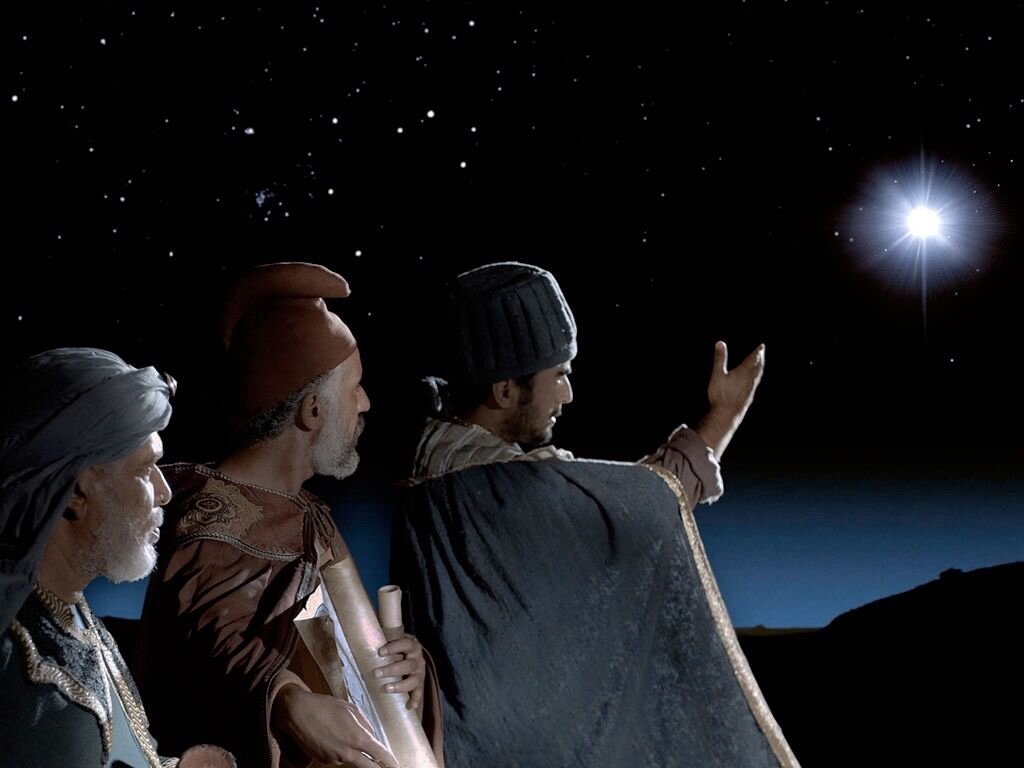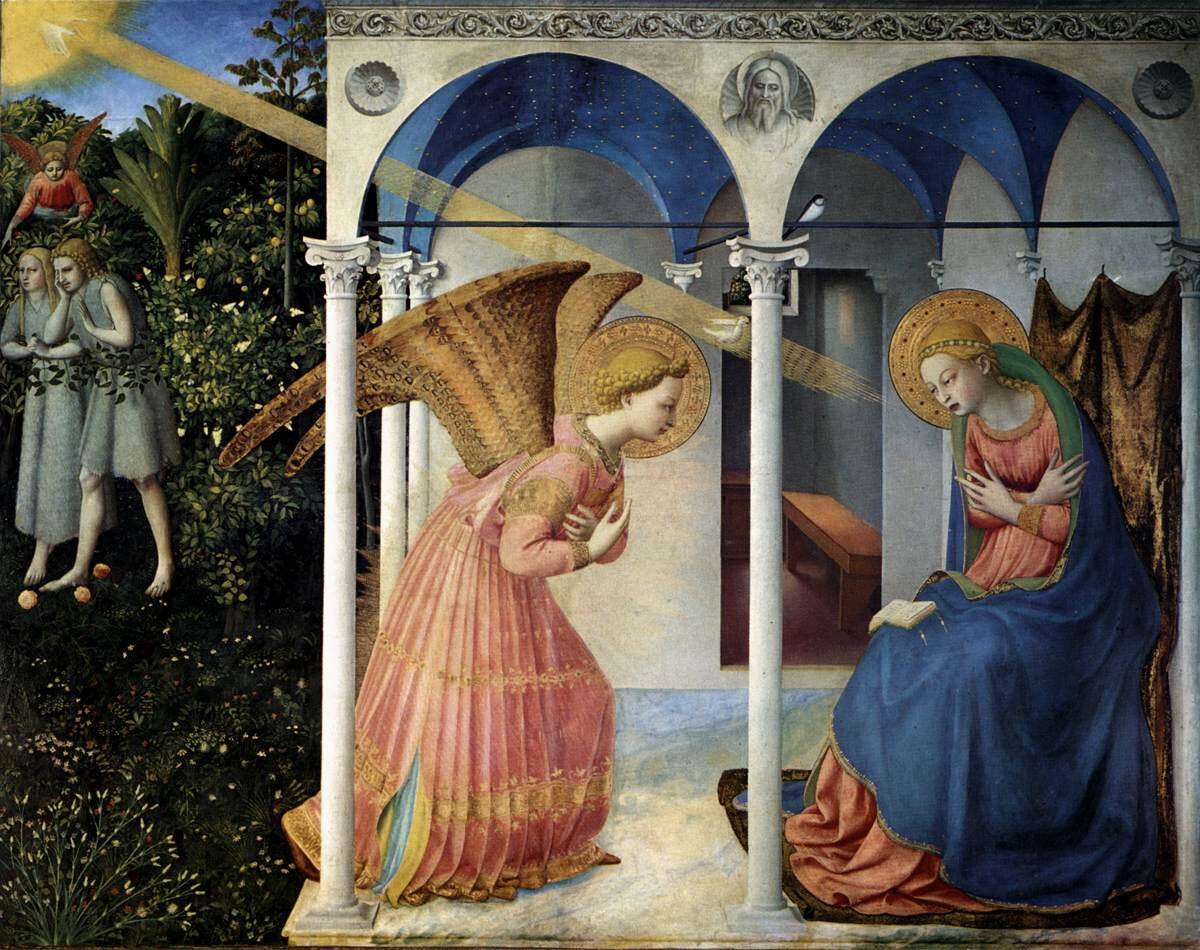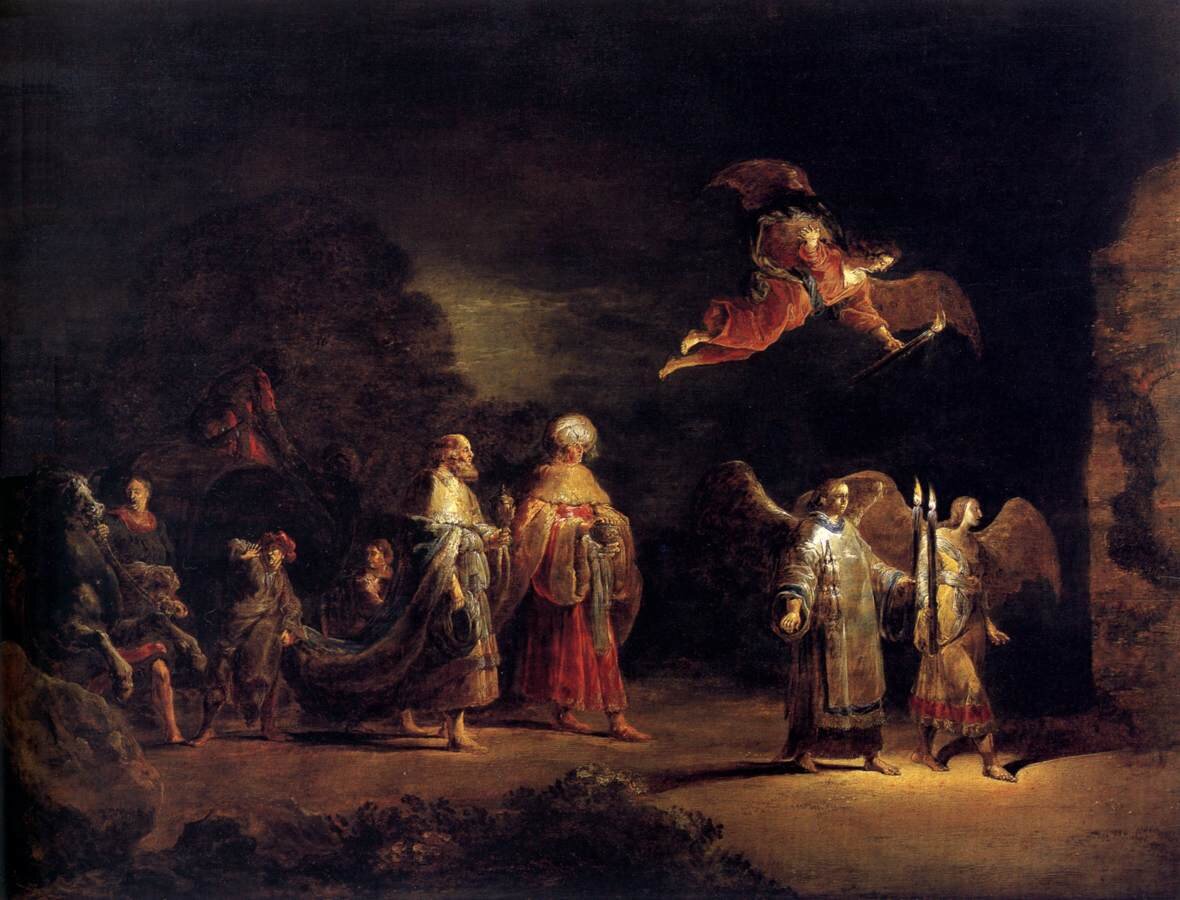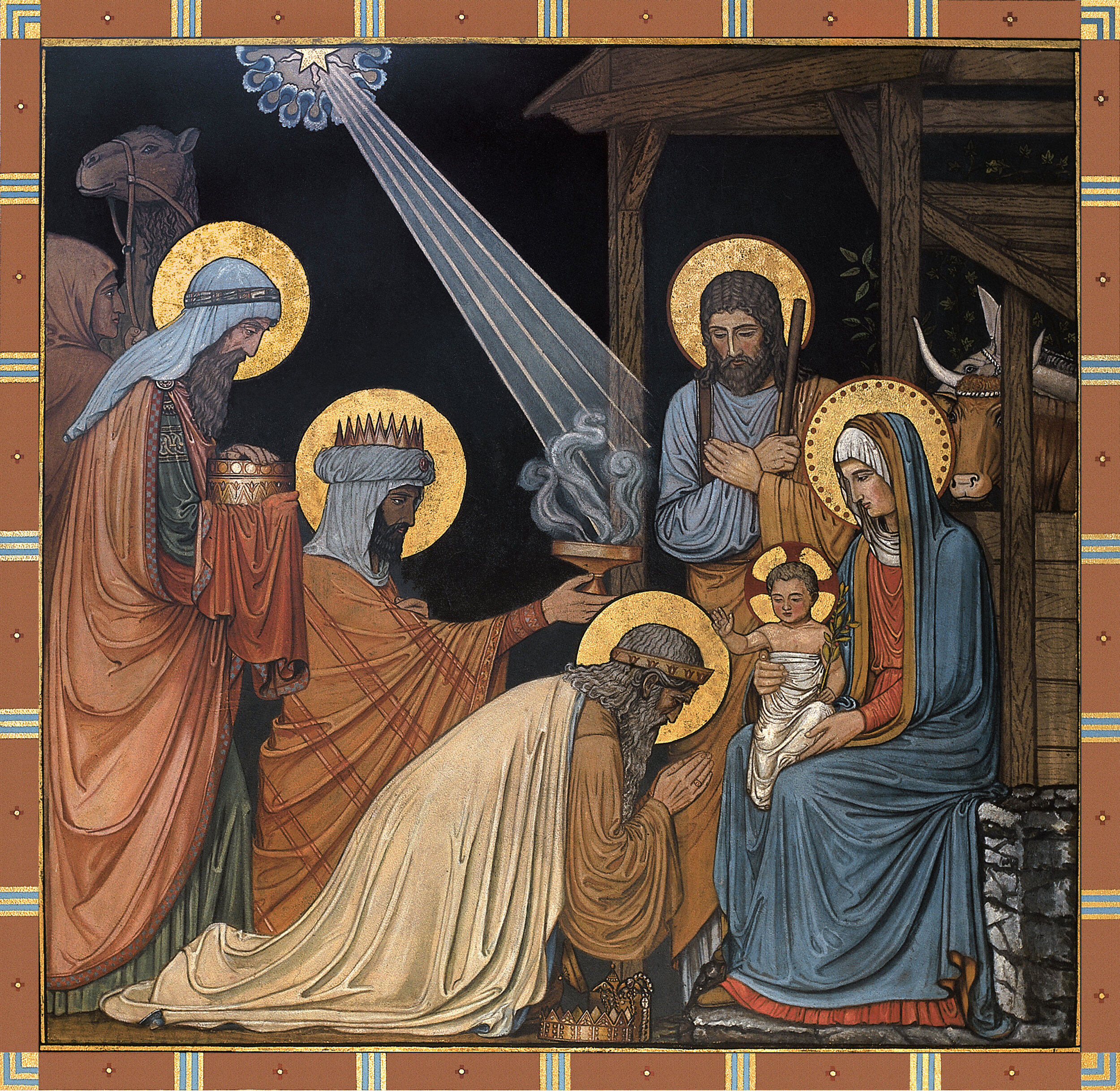The Gifts of the Magi: On the Twelfth Day Comes Epiphany
 Epiphany marks the Birth of the Messiah revealed to the Gentiles symbolized in the story of the Magi, but on a deeply personal level, it is also our Great Awakening.What are we becoming? A recent issue of The Wall Street Journal has an interesting book review by Tim Crane entitled “Better Off Without Him?” (Dec. 18, 2018). Mr. Crane, a philosophy professor at Central European University, reviewed Seven Types of Atheism, a book by John Gray. The review begins with a question I have long pondered: “Is atheism simply an idea or is it a worldview like the religions it is supposed to replace?”I did not know that there are seven types of atheism, but there is no point, for our purposes, in analyzing them all. I embraced atheism for a brief time in the intellectual arrogance of my teen years, back when I knew everything. I found that it offers nothing to replace the hope that it sucks out of the human experience. I also discovered that it has very few holidays and precludes any legitimate reason to get a Christmas present. But it was its hopelessness that turned me toward another course.Does the human condition in this modern age really need another source of hopelessness? There is a strain of atheism - the Richard Dawkins variety - that seems less devoted to promoting itself than tearing apart all religious expression. Atheists who insist on winning converts are highly suspect. I wonder who exactly they are trying to convince: us, or themselves?If you have read some of my science posts in these pages - “The March for Life and the People on the Planet Next Door” is a good example - then you know that for reasons related more to science than to faith, I doubt the existence of extraterrestrial intelligent life, but I have no need to convert the UFO crowd.At the same time, I believe in God, in heaven, and in angels, none of which I have seen with my eyes. But I have “seen” them in other ways through an intuition that I have long believed is encoded in our very genetic makeup. I have some scientific back-up for that view from Andrew Sullivan writing recently at NYMag.com:
Epiphany marks the Birth of the Messiah revealed to the Gentiles symbolized in the story of the Magi, but on a deeply personal level, it is also our Great Awakening.What are we becoming? A recent issue of The Wall Street Journal has an interesting book review by Tim Crane entitled “Better Off Without Him?” (Dec. 18, 2018). Mr. Crane, a philosophy professor at Central European University, reviewed Seven Types of Atheism, a book by John Gray. The review begins with a question I have long pondered: “Is atheism simply an idea or is it a worldview like the religions it is supposed to replace?”I did not know that there are seven types of atheism, but there is no point, for our purposes, in analyzing them all. I embraced atheism for a brief time in the intellectual arrogance of my teen years, back when I knew everything. I found that it offers nothing to replace the hope that it sucks out of the human experience. I also discovered that it has very few holidays and precludes any legitimate reason to get a Christmas present. But it was its hopelessness that turned me toward another course.Does the human condition in this modern age really need another source of hopelessness? There is a strain of atheism - the Richard Dawkins variety - that seems less devoted to promoting itself than tearing apart all religious expression. Atheists who insist on winning converts are highly suspect. I wonder who exactly they are trying to convince: us, or themselves?If you have read some of my science posts in these pages - “The March for Life and the People on the Planet Next Door” is a good example - then you know that for reasons related more to science than to faith, I doubt the existence of extraterrestrial intelligent life, but I have no need to convert the UFO crowd.At the same time, I believe in God, in heaven, and in angels, none of which I have seen with my eyes. But I have “seen” them in other ways through an intuition that I have long believed is encoded in our very genetic makeup. I have some scientific back-up for that view from Andrew Sullivan writing recently at NYMag.com:
“Everyone has a religion. It is, in fact, impossible not to have a religion if you are a human being. It is in our genes and has expressed itself in every culture, in every age. By religion, I mean something quite specific: a way of life that gives meaning, a meaning that cannot really be defended without recourse to some transcendent value, undying ‘Truth,’ or God. We are a meaning-seeking species.”
When the meaning that religious faith brings to us has stripped away, humans will turn to a quest to fill the void. The great Catholic convert and writer, G.K. Chesterton, once wrote that “People who don’t believe in God don’t believe in nothing. They believe in anything.” When people in Western Culture invent a reason to shun God, they will seek meaning by any other means.So look around you at what actually replaces religious faith when its rejection leaves behind any meaning to your life. Where do people look for meaning? In the United States, Wiccans (1.5 million) now outnumber Presbyterians (1.4 million) for the first time in history. The percentage of Americans who do not identify with a religion grew from 14 percent in 2000 to 24 percent in 2016.Before the 2018 midterm elections, the “Nones” kicked off a “Get-Out-the-Secular-Vote” campaign seeking to unite nearly a quarter of the American population based on what they DON’T believe as their common denominator. Meanwhile, an opiate crisis has spun out of control taking the lives of thousands of young adults yearning to fill a hopeless void, and suicide is now the highest cause of death among young and middle-aged adults.THE HISTORY BEHIND OUR EPIPHANY What we need is an epiphany. The word, “epiphany” comes from the Greek, epiphaneia, which means “manifestation.” In the Eastern Orthodox churches since the first centuries A.D., Epiphany has marked the commemoration of the Baptism of Jesus. In the West in the Roman Catholic tradition, Epiphany is connected to the birth of Jesus and has always been tied to Christmas. This “season of hope” in a time of rapidly spreading hopelessness needs a little history.The first historical record of celebrating Cristes Maesse, late Old English for the Mass of Christ or Christmas, dates from the year 1038 A.D. However a citation of December 25 as the birth of Jesus was found in a Roman document called the Philocadian Calendar dated 336 A.D. The date was a custom of the people even long before that, reaching into the earliest life of the Church.There are multiple explanations for why the date of December 25 became customary, and probably a combination of them tells the true story. One of these explanations ties into a Roman belief that great men are destined to perish on the same date on which they were conceived.It may actually have been the date of the Annunciation that was conceived first (no pun intended). Someone managed to calculate, accurately or not is unknown, that the crucifixion of Christ took place on March 25 so that also became the Feast of the Annunciation. Nine months further brings you to a birth date on December 25.The official establishment of this date was also influenced by the Roman Saturnalia, a late December pagan feast that stretched for twelve nights from the winter solstice to the first of January.Saturnalia honored the birth of Mithra, a popular religion of Rome. It’s an historical puzzle that Mithra was also at the heart of Zoroastrianism, the religion of an enemy of the Roman Empire. This is an important factor, as you will see below, for Epiphany.As Christianity grew in the Roman Empire in the first three centuries Anno Domini, it absorbed these traditions. In the year 567 A.D. the Council of Tours replaced the Twelve days of Saturnalia with the Twelve Days of Christmas. It begins at the vigil of December 24 and ends with Epiphany, the manifestation of the Birth of the Messiah to Magi from the East (Matthew (2:1-12).The Magi of our story were the remnant of Zoroastrian religion. From 1200 BC to the time of Jesus, Zoroastrianism spread across the Iranian plateau. In the two centuries before the Birth of the Messiah, Zoroastrianism was a major force on the frontier of the Roman Empire, and Caesar’s greatest enemy in the Middle East. It shared some beliefs with Jews and early Christians, including a belief in an apocalyptic end of the world, in heaven and hell, in a resurrection from the dead, and in the coming of a Savior.A region of Zoroastrianism, the Parthians, captured Jerusalem in 40 B.C. Not long before the Birth of Christ, Herod the Great retook Jerusalem with the help of Rome and forced the Parthians out of the city. In the Book of Acts of the Apostles: there were Parthians still present in Jerusalem at the time of Pentecost:
What we need is an epiphany. The word, “epiphany” comes from the Greek, epiphaneia, which means “manifestation.” In the Eastern Orthodox churches since the first centuries A.D., Epiphany has marked the commemoration of the Baptism of Jesus. In the West in the Roman Catholic tradition, Epiphany is connected to the birth of Jesus and has always been tied to Christmas. This “season of hope” in a time of rapidly spreading hopelessness needs a little history.The first historical record of celebrating Cristes Maesse, late Old English for the Mass of Christ or Christmas, dates from the year 1038 A.D. However a citation of December 25 as the birth of Jesus was found in a Roman document called the Philocadian Calendar dated 336 A.D. The date was a custom of the people even long before that, reaching into the earliest life of the Church.There are multiple explanations for why the date of December 25 became customary, and probably a combination of them tells the true story. One of these explanations ties into a Roman belief that great men are destined to perish on the same date on which they were conceived.It may actually have been the date of the Annunciation that was conceived first (no pun intended). Someone managed to calculate, accurately or not is unknown, that the crucifixion of Christ took place on March 25 so that also became the Feast of the Annunciation. Nine months further brings you to a birth date on December 25.The official establishment of this date was also influenced by the Roman Saturnalia, a late December pagan feast that stretched for twelve nights from the winter solstice to the first of January.Saturnalia honored the birth of Mithra, a popular religion of Rome. It’s an historical puzzle that Mithra was also at the heart of Zoroastrianism, the religion of an enemy of the Roman Empire. This is an important factor, as you will see below, for Epiphany.As Christianity grew in the Roman Empire in the first three centuries Anno Domini, it absorbed these traditions. In the year 567 A.D. the Council of Tours replaced the Twelve days of Saturnalia with the Twelve Days of Christmas. It begins at the vigil of December 24 and ends with Epiphany, the manifestation of the Birth of the Messiah to Magi from the East (Matthew (2:1-12).The Magi of our story were the remnant of Zoroastrian religion. From 1200 BC to the time of Jesus, Zoroastrianism spread across the Iranian plateau. In the two centuries before the Birth of the Messiah, Zoroastrianism was a major force on the frontier of the Roman Empire, and Caesar’s greatest enemy in the Middle East. It shared some beliefs with Jews and early Christians, including a belief in an apocalyptic end of the world, in heaven and hell, in a resurrection from the dead, and in the coming of a Savior.A region of Zoroastrianism, the Parthians, captured Jerusalem in 40 B.C. Not long before the Birth of Christ, Herod the Great retook Jerusalem with the help of Rome and forced the Parthians out of the city. In the Book of Acts of the Apostles: there were Parthians still present in Jerusalem at the time of Pentecost:
“Amazed and astonished, they asked... Are not all those who are speaking Galileans? How is it that we hear, each of us, in our own native language? Parthians, Medes, Elamites, residents of Mesopotamia, Judea, and Capadocia, Pontus and Asia, Phrygia and Pamphylia, Egypt and the parts of Libya belonging to Cyrene, and visitors from Rome, both Jews and proselytes, Cretans and Arabs - in our own language we hear them speaking about God’s deeds of power.” (Acts 2:7-11)
THE EPIPHANY TO THE MAGI FROM THE EAST This is all part of the complex background of the Gospel for Epiphany Sunday, and it was first dissected in these pages in a 2011 post, “Upon a Midnight Not so Clear Some Wise Men from the East Appear.” We will link to it again, and some related posts, at the end of this one.The story of the Magi is considered among Scripture scholars to be a “midrash.” It comes from the Hebrew “midrash” which means to seek its hidden meaning for a new generation of listeners. This is a type of Biblical interpretation that sees the importance of a story in its relevance to the lives of its hearers, and not in its literal sense. The noun, “midras” appears twice in the Hebrew Scriptures, (2 Chronicles 13:22 and 2 Chronicles 24:27).This does not mean that these stories are not also historical. The two accounts of the Birth of the Messiah in Matthew and Luke come from very different circulating traditions and do not share a common source. Both accounts have Semitic origins. Both cite Hebrew Scriptures to reveal Jesus as the prophesied Messiah-King.As explained above, the Gospel for Epiphany Sunday is the story of the Magi (Matthew 2:1-12). The story begins: “When Jesus was born in Bethlehem of Judea, in the days of King Herod, behold, Magi from the East arrived in Jerusalem....” The Herod referred to here is Herod the Great, a vassal king under the Roman Emperor who drove the Zoroastrian Parthian invaders from Jerusalem.One objection to the historical truth of the Magi account is that little of what transpires in it can be found in sources outside of Scripture, but all of it is consistent with what history knows of the ruthless Herod. His attempt to manipulate the Magi into reporting back to him about their interpretation of the Star of Bethlehem, and his gruesome slaughter of the innocent male children of Bethlehem when the Magi fail to return, are all consistent with what history knows of Herod.The Gospel of Matthew takes great pains to situate the story in salvation history. “Wise men from the East” associates the mysterious visitors with Zoroastrian religion in its final days, and presents them with an Epiphany, a manifestation of the King of Kings. The Star of Bethlehem that they follow to Christ is reminiscent of the Fourth Oracle of Balaam in the Book of Numbers:
This is all part of the complex background of the Gospel for Epiphany Sunday, and it was first dissected in these pages in a 2011 post, “Upon a Midnight Not so Clear Some Wise Men from the East Appear.” We will link to it again, and some related posts, at the end of this one.The story of the Magi is considered among Scripture scholars to be a “midrash.” It comes from the Hebrew “midrash” which means to seek its hidden meaning for a new generation of listeners. This is a type of Biblical interpretation that sees the importance of a story in its relevance to the lives of its hearers, and not in its literal sense. The noun, “midras” appears twice in the Hebrew Scriptures, (2 Chronicles 13:22 and 2 Chronicles 24:27).This does not mean that these stories are not also historical. The two accounts of the Birth of the Messiah in Matthew and Luke come from very different circulating traditions and do not share a common source. Both accounts have Semitic origins. Both cite Hebrew Scriptures to reveal Jesus as the prophesied Messiah-King.As explained above, the Gospel for Epiphany Sunday is the story of the Magi (Matthew 2:1-12). The story begins: “When Jesus was born in Bethlehem of Judea, in the days of King Herod, behold, Magi from the East arrived in Jerusalem....” The Herod referred to here is Herod the Great, a vassal king under the Roman Emperor who drove the Zoroastrian Parthian invaders from Jerusalem.One objection to the historical truth of the Magi account is that little of what transpires in it can be found in sources outside of Scripture, but all of it is consistent with what history knows of the ruthless Herod. His attempt to manipulate the Magi into reporting back to him about their interpretation of the Star of Bethlehem, and his gruesome slaughter of the innocent male children of Bethlehem when the Magi fail to return, are all consistent with what history knows of Herod.The Gospel of Matthew takes great pains to situate the story in salvation history. “Wise men from the East” associates the mysterious visitors with Zoroastrian religion in its final days, and presents them with an Epiphany, a manifestation of the King of Kings. The Star of Bethlehem that they follow to Christ is reminiscent of the Fourth Oracle of Balaam in the Book of Numbers:
“The Oracle of Balaam son of Beor, the oracle of a man whose eye is clear, the oracle of one who hears the words of God, and knows the knowledge of the Most High, who sees the vision of the Almighty, who falls down, but with his eyes uncovered: I see him, but not now; I behold him, but not near - a star shall arise out of Jacob...” (Numbers 15-17)
The Star of Bethlehem could be rooted in history. Virgil’s mythological epic poem, The Aeneid, written just before the Birth of Jesus refers to “a star, leading a meteor, flew with much light.” Bethlehem was the city of David’s ancestor, Ruth (1:1-4). The Prophet Micah also refers to Bethlehem as the birthplace of a Messiah, and it is quoted in Matthew (2:6):
“But you, O Bethlehem of Ephratha, who are one of the little clans of Judah, from you shall come forth for me one who is to rule in Israel, whose origin is from of old, from ancient days. Therefore he shall give them up until the time when she who is in labor has brought forth; then the rest of his kindred shall return to the people of Israel. And he shall stand and feed his flock in the strength of the Lord, in the majesty of the name of the Lord, his God.” (Micah 5:2-4)
Some have theorized that the “Wise Men from the East” in our Gospel for the Epiphany refers to a physical location such as Persia or Arabia. That may be so, but I propose another, more symbolic origin, and admittedly I have seen no authority for it anywhere among the scholars of Sacred Scripture.I think some may be looking so deeply for history that they fail to really see. These Magi from the East are summoned to embrace not only their own Epiphany but ours as well the manifestation of Christ the King Coming from the East may also be figurative, meaning that they come from the place of sinful humanity’s exile. Adam and Eve were banished East of Eden (Genesis 3:24). In the next generation, Cain was banished to wander “In the Land of Nod, East of Eden” (Genesis 4:16).In our age, some are wandering East of Eden still, and the summons to join them grows ever stronger and more enticing. This is not because of the scandals of shepherds not quite up to the task, or the moral vision of priests who falter. It is because there is a force at work throughout history to blind us to our Epiphany. Join the Magi, and me, in turning our gaze from the east of our exile, and all its morbid void, to enter the house and call it our home.
“On entering the house, they saw the male child with Mary his mother and they knelt down and paid him homage.”(Matthew 2 11)
Note from Father Gordon MacRae: Please share this post. You may also like these related posts from These Stone Walls:
- Upon a Midnight Not so Clear, Some Wise Men from the East Appear
- Phasers on Stun, Mr. Spock’ Captain Kirk’s Star Trek Epiphany
- Dismas, Crucified to the Right: Paradise Lost and Found
- What Belongs to Caesar and What Belongs to God

